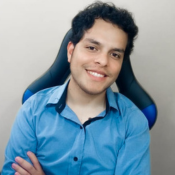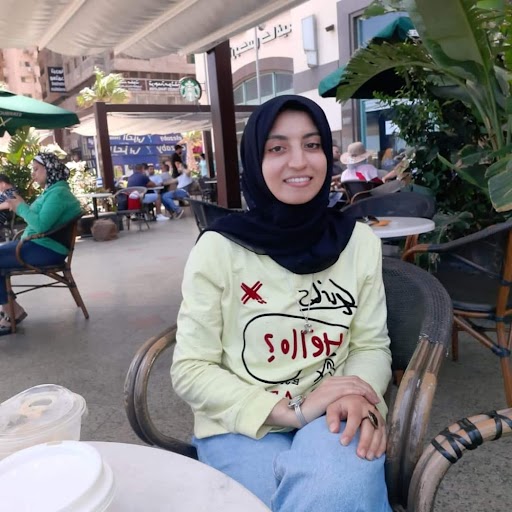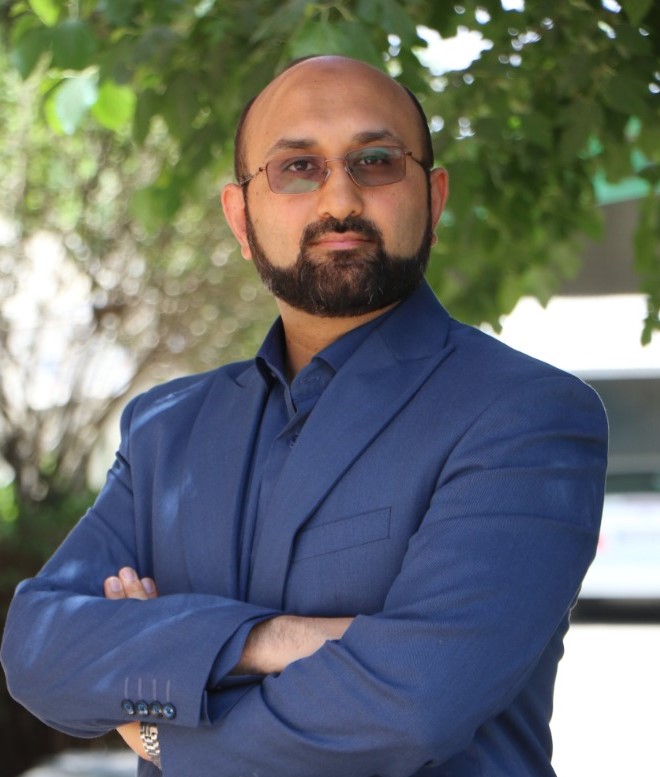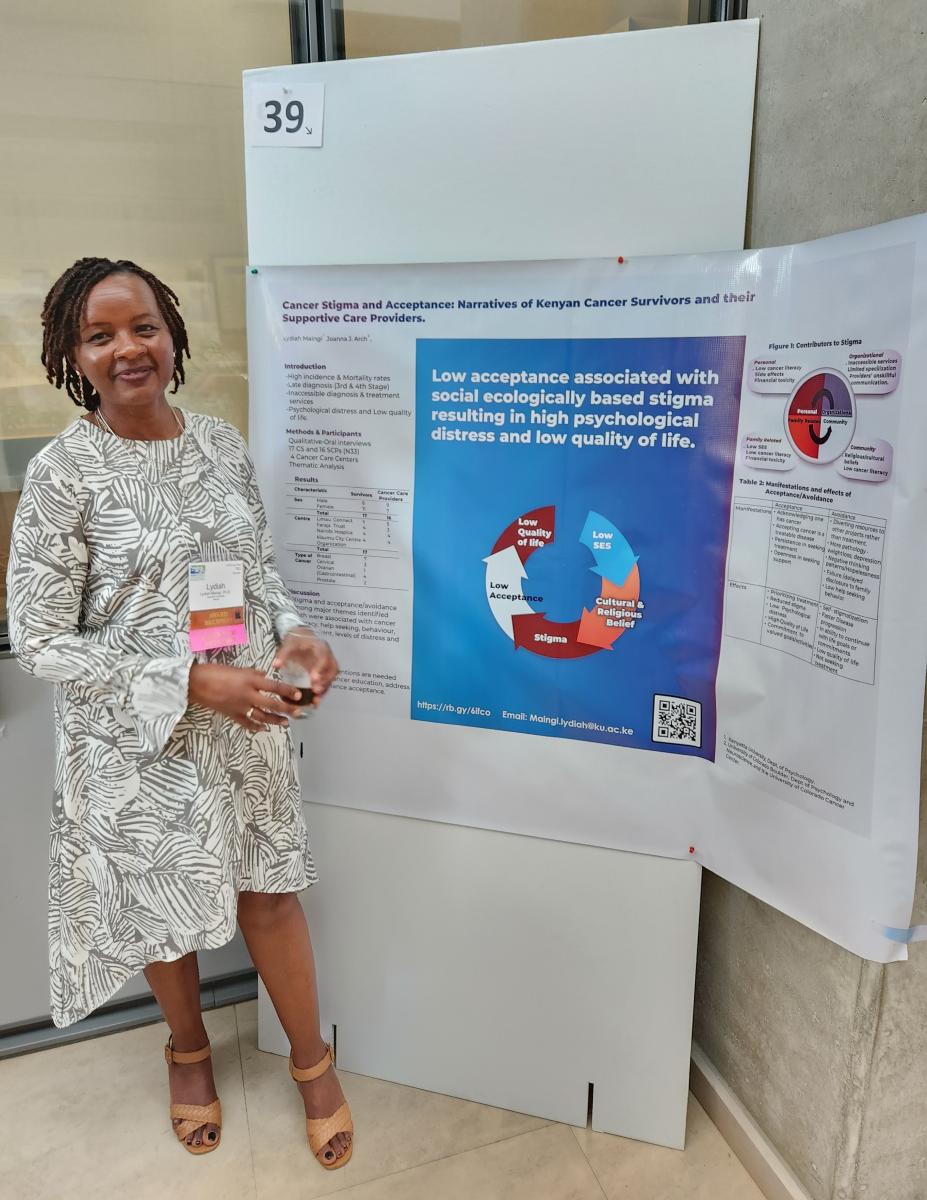2023 Dissemination Activities
2023 Dissemination Activities office_1Actividad de Difusión de Perú 2023
Actividad de Difusión de Perú 2023Bryan Guerrero Trujillo, Lima – Perú
¿Podrías contarnos un poco sobre ti y tus antecedentes?
Hola soy Bryan, psicólogo y psicoterapeuta individual y de pareja. No se si catalogarme como psicoterapeuta ACT, pero lo vengo estudiando y entrenándome desde hace 6 años, la terapia de aceptación y compromiso (ACT) y la terapia integral conductual de pareja (IBCT) son las que más he estudiado, me he formado y he dictado cursos.
¿Cómo te interesaste en CBS?
Mi forma de entrar al mundo de la ciencia conductual contextual puedes ser resumida como un amor a primer oído. Estudié psicología en la Universidad Autónoma del Perú en mis inicios estaba muy entusiasmado por ver lo que iba a aprender y recuerdo que en el curso de Análisis experimental del comportamiento cuando me hablaron del conductismo, Skinner, los principios de aprendizaje, experimentos con ratas me pareció algo increíble y desde ese momento entre al mundo del conductismo desde entonces empecé a leer y conocer más. La Facultad de Psicología de mi universidad todos los años hace un Congreso Internacional donde reúne a diferentes psicólogos donde se realiza ponencias de diferentes temáticas, recuerdo que entre a un simposio de psicología clínica y psicoterapias contemporáneas, es allí donde escuche por primera vez sobre ACT, cuando escuche de lo que se trataba la terapia se me hizo muy conductual y a la vez muy cálida y amable con el consultante así mismo me llamo la atención que era una terapia basada en evidencia. Cuando acabo el simposio recuerdo que le pedí a los ponentes que me briden sus correos para que me pasen libros y donde podría formarme en eso. Desde ese momento me entusiasme en ACT y RFT, leía libros, veía videos sobre eso también recuerdo que realice un curso en ACT, siendo estudiante de sexto ciclo de la carrera, solo éramos 5 alumnos que estábamos haciendo ese curso en un centro de formación aquí en lima. Luego de ello tuve la oportunidad de pertenecer a un grupo de estudio sobre terapias basadas en evidencia y conocí más de ACT, luego con un grupo de compañeros creamos un grupo de estudio en nuestra propia universidad con el objetivo de que nuestros compañeros conozcan sobre las terapias contextuales. Realice mis practicas pre profesionales en el mismo centro en el cual escuche por primera vez ACT, termine la universidad con una tesis basada en ACT, me dieron trabajo en el mismo centro donde conocí ACT por primera vez luego por motivos externos tuve que retirarme y es allí donde abrí mi propio Centro de Formación en Terapias Contextuales, desde hace 6 años me he formado en ACT, RFT, IBCT, FAP, BA en diferentes países, he participado como ponente en charlas y talleres sobre ACT, hace 2 años me invitaron a la universidad donde estudie para hablar sobre ACT y fue en el congreso donde hace 6 años yo había estado como asistente y oyente, pero ahora mis valores me habían guiado ha estar al frente de unos alumnos intentado trasmitir lo que años antes alguien me había trasmitido y era esta chispa por conocer ACT y temas que no nos enseñaban en las universidad.
¿Podría contarnos sobre sus intereses de investigación y aplicaciones?
Mis intereses actualmente están muy relacionados a aplicar ACT en grupos, difundir ACT y RFT también la IBCT, mi población es adultos y parejas.
¿Podría contarnos su experiencia en la Conferencia Mundial de este año?
Mi experiencia en el congreso mundial fue increíble aprendí mucho a pesar de solo entender lengua castellana, ver a los máximos exponentes de ACT fue maravilloso aún así allá sido virtual. El próximo año lo harán en argentina así que estoy muy muy entusiasmado por eso también porque al fin podré verlos en persona.
¿Tienes algo más que te gustaría compartir con la comunidad?
Agradezco infinitamente a la ACBS por brindar esas becas que son de mucha ayuda para las personas que no podemos costear el ingreso por nuestra situación económica, están ayudando y apoyando a que la comunidad crezca y que cada uno nos acerquemos a nuestros valores como profesionales y terapeutas.
Egypt Dissemination Activities 2023
Egypt Dissemination Activities 2023  Dina Masoud Abdelhafez Abdraboh, Egypt
Dina Masoud Abdelhafez Abdraboh, Egypt
I am a psychiatrist and psychotherapist using ACT for 3 years now and I have special interest about using it with children and adolescents. But I also use it with adults.
I wrote a book about it then took course with Dr. Steven Hayes and admired his way of therapy alot. I used it in many disorders in adults and also with adolescents with great results.
I am interested in research with adolescents and children.
It was amazing actually.. I took to different people and learned alot from the sessions.
They are very helpful people and appreciate science and doing their best so we can all share our experiences together.
Better understanding of ACT in my practice and to be more deep when using it... I had better understanding of the concept of transdiagnostic approach.
Iran Dissemination Activities 2023
Iran Dissemination Activities 2023Seyed Ali Kolahdouzan, Iran
Could you please tell us a little about you and your background?
I was born and raised in Iran. When I was nineteen years old, I immigrated to the United States to live and continue my education. There, I have received my bachelor's degrees in "Biological Sciences" and "English Literature" from University of Maryland, Baltimore County, and then I've got my master degree in "Interdisciplinary Studies in Humanities" from Towson University. When I returned back home, I continued my study in psychology and I've got my Ph.D. in Psychology from University of Isfahan, Iran. Currently, I am a faculty member in the psychology of health department at Isfahan University of Medical Sciences.
How did you become interested in CBS?
During my Ph.D., I became familiar with ACT and I fall in love with it. I wanted to learn ACT first handed, so as a sabbatical leave, I went to University of Nevada for one semester to be trained and work under the supervision of Dr. Steven C. Hayes. There, I attended many Ph.D. classes and I got a chance to learn about other forms of therapies in CBS. As I returned back home, I became a member of the ACBS Persian chapter and five years later, I became the president of the chapter. So, for the last eight years, ACT and CBS were part of my main focuses in my academic fields.
Could you tell us about your research and application interests?
My Ph.D. thesis was "Designing two therapeutic packages based on ACT and Abrahamic Religions to evaluate the effect of death anxiety on psychological health and quality of life of cancer patients." My main research and clinical interest is on palliative care and end-of-life care psychotherapy. I am also interested in spiritual care & health, logotherapy, existential psychotherapy and psychology of death. Currently, I am the head of the behavioral research center at Isfahan University of Medical Sciences.
Could you tell us about your experience at the World Conference this year?
If I want to say it in a simple sentence, I shall say, "it was an absolute pleasure and an amazing gift for me." I had this opportunity to get in touch with many great CBS scholars, scientists, researchers and psychotherapists, and relearned and evolved my ACT and other CBS knowledge. I attended a two-day workshops on "Trauma" by Robyn Walser. It was a pure pleasure and amazingly informative. Then, I spent a couple of days swimming in an ocean of amazing subjects and topics related to CBS. Especially, I found many interesting topics on "palliative care," "end-of-life" and "death and dying." It was really good. Moreover, finding new connections and networks during the World Conference was another thing that made me so grateful.
Was there anything that stood out to you about the CBS community?
Participating in the conference was very beneficiary for me. I got updated from various new research topics and innovations in the field of psychology and learned new methods and concepts of different psychotherapies in CBS. The great attitude and welcoming culture of the CBS community was truly beautiful. I am so glad to be part of such an outstanding warm culture.
What did you take back from your experience that has been helpful to you?
Even though none of prominent CBS and ACT founders have ever been in Iran, Iran has one of the highest number of publication of ACT articles in the world. There are so many people in Iran who want to learn about ACT and CBS from the main sources, but they simply do not have the opportunity to act upon. When I got a chance to participate in the World Conference, I tried to pass on my experiences and knowledge to the Iranian academics who were so eager to be updated from ACT and CBS. I can proudly say that in the World Conference, I was the representative of at least several thousand Iranian people who passionately love to learn about ACT and CBS. I tried to pass my experiences in the workshops, classes, webinars and seminars that I participated all over the countries. All of my students really appreciated the rich contents that they have been introduced to.
Do you have anything else that you would like to share with the community?
I know I am asking too much, but if each year, at least one Iranian can have this opportunity to participate in the world conference, I think that would elevate the knowledge and understanding of so many Iranians who missed to be part of this amazing culture and community. In the Persian chapter, we would like to expand the CBS into the public forum and show general public how they can benefit from ACT and CBS in their daily lives. So, we need to learn new methods and protocols of teaching and therapy, so we can pass these knowledge as best as possible. We hope the CBS community helps us to reach this goal.
Kazakhstan Dissemination Activities 2023
Kazakhstan Dissemination Activities 2023  Dinara Tussupkaliyeva, Kazakhstan
Dinara Tussupkaliyeva, Kazakhstan
Could you please tell us a little about you and your background?
I am Dianara Tussupkaliyeva, a native of Kazakhstan, currently pursuing a master's degree in the psychology of intercultural relations. My research focuses on the attitudinal and cultural aspects of gender-based violence.
As a consulting psychologist, I specialize in assisting adults with relationship issues, identity crises, acculturation stress, and complex post-traumatic stress disorder (CPTSD), while also incorporating an intersectional approach to my work. Additionally, I focus on systemic discrimination within various contexts, examining its impact on individuals and communities.
How did you become interested in CBS?
Following my introduction to the ACT method, self-study of its manuals, and completion of an online course led by Steven Hayes,I began applying ACT in my daily work with clients and for personal development. Shortly after, I joined ACBS and participated in an online conference.
Could you tell us about your research and application interests?
My research focuses on understanding the socio-cultural factors that affect people's tolerance of gender-based violence, along with systemic discrimination in different settings. I aim to create evidence-based interventions to reduce systemic gender-based discrimination, particularly when it's justified by cultural or societal norms. I'm particularly keen on utilizing the CBS approach, particularly values work, for its potential in effectively addressing these issues.
Could you tell us about your experience at the World Conference this year?
Attending the conference in Cyprus was a highlight of my year! I found myself among like-minded individuals who shared my enthusiasm for learning - nerdy, compassionate, and humorous individuals dedicated to alleviating human suffering. Meeting and talking with colleagues from around the globe was particularly enjoyable. In Kazakhstan, the community of practitioners working in CBS is still relatively small, and it can be quite lonely. So, hearing firsthand experiences from those who have gone through similar journeys was especially gratifying. Despite geographical, linguistic, and cultural differences, we all share something much deeper. Experiencing this unity at the conference was personally reassuring and a reminder that the path to developing the CBS community in my country may be long, but the important thing is to keep moving forward. I found the lectures and practical seminars on existential topics and sessions by guest speakers to be particularly enjoyable. Witnessing the development of CBS in addressing societal and ecological issues has deepened my admiration for the community. Additionally, I would like to extend my heartfelt appreciation to the conference organizers for creating an atmosphere that was both welcoming and inclusive. It truly enhanced my overall enjoyment and made me feel valued as a participant.
Was there anything that stood out to you about the CBS community?
The inclusivity and warmth of the CBS community truly stood out to me. I genuinely appreciated the welcoming atmosphere and the opportunity to connect with like-minded individuals from diverse backgrounds. It was a wonderful experience, and I'm incredibly grateful for the opportunity to participate in the conference.
What did you take back from your experience that has been helpful to you?
Apart from feeling a sense of belonging to the broader community of CBS practitioners, I gained practical tools to enhance my work with clients. The feedback received during my poster session affirmed the relevance and potential for further advancement of my research. Additionally, forming new friendships with whom I anticipate reconnecting at future ACT trainings was enriching. Lastly, these experiences collectively inspired fresh ideas for implementing the CBS approach with different populations.

Kenya Dissemination Activities 2023
Kenya Dissemination Activities 2023Lydiah Maingi, Kenya
Could you please tell us a little about you and your background?.jpg)
I am a counselling Psychologist and Lecturer at the department of Psychology in Kenyatta University, Nairobi, Kenya. There is limited mention, use and training of CBS concepts/principles in Kenya. and hence I had never interacted with it in my training or therapy work.
How did you become interested in CBS?
I learnt about ACT in the process of reviewing literature on appropriate interventions for cancer survivors. I contacted Prof. Steve Hayes who connected me with Joanna Arch, a mentor I have to date. I participated in ACT training via ACT immersion and continue to further my knowledge and skills through the ACBS resources. I also learnt about ACBS community and joined the organisation in 2020 and continue to benefit from the resources available via the website.
Could you tell us about your research and application interests?
My research interests are in Mental health, specifically on Compassion Fatigue among health care providers, Depression and Anxiety and on Psychosocial support for Cancer survivors. I desire to support cancer patients to accept and improve their quality of life despite their cancer experiences in a country where treatment accessibility is low. I successfully applied for the ACBS Development Research Award in 2021 courtesy and together with Joanna Arch to conduct a study on "Gaps in Supportive Care for Cancer Patients in Kenya: Recommendations for Acceptance and Commitment Therapy Intervention". Later in the year (2022) I applied and was granted the ACBS Developing Nations Award to attend the ACBS 2023 conference where I would present the preliminary findings of the ACBS funded project. Currently, I am developing an ACT intervention to address the gaps faced by cancer survivors in Kenya.
Could you tell us about your experience at the World Conference this year?
The experience at the ACBS world conference at Nicosia, Cyprus is very memorable. The workshops came in handy for me and helped to grasp the ACT metaphors and to experience the exercises personally and practically. I particularly learnt how to utilise ACT from where I am through the Pre-conference workshop by David Gillanders "Starting where you are at: How to integrate ACT and other Contextual Behavioural Principles into your work". The fact that I could follow more conference sessions later after the conference made it easier for me to select the sessions that were more practical during the physical conference at Nicosia. This gave me the opportunity to maximise more conference presentations than would have been possible in a few days of physical presence. I commend the conference organisers for this.
Was there anything that stood out to you about the CBS community?
The CBS community comprises of very friendly and down to earth members who made my first time experience at the ACBS conference easy and memorable. The enthusiasm, love and utilisation of the CBS concepts in research and client work as illustrated in most presentations demonstrated not only a belief in but also the usability and effectiveness of CBS and ACT specifically. This was very inspiring for me.
What did you take back from your experience that has been helpful to you?
I have been able to integrate ACT in my client work and also in my teaching. The books that I bought at the conference and other resources as well as the exposure I got has continued to motivate me to utilise the CBS principles. I have developed a proposal for an ACT intervention with Cancer Survivors and hope to get funding to roll it out. I look forward to having more of my colleagues engage in ACBS. I also hope to soon publish my recent findings in a journal which will enhance dissemination of ACT in Kenya, a Low and Middle Income Country (LMIC).
Do you have anything else that you would like to share with the community?
There is need to disseminate the CBS principles and the existence of ACBS in Kenya. While I hope to make that happen, any other efforts towards that will be highly appreciated.
I am very grateful for the Developing Nations Award that made it possible for me to attend the conference that I would have otherwise not been able to. To the committee and the conference organisers, thank you all for a well planned event.
